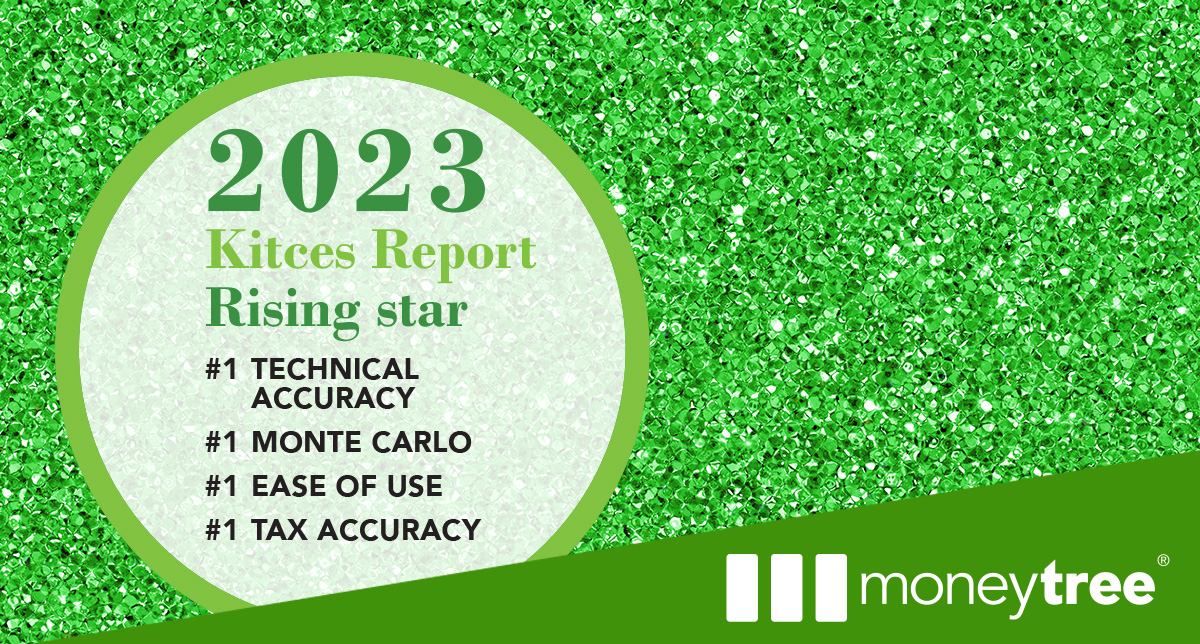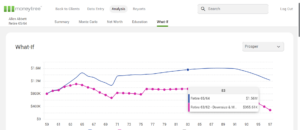Moneytree is a “Rising Star” among financial planning software providers and holds the highest value among the top four market leaders.
That’s the takeaway from the 2023 AdvisorTech Study by the Kitces Report, released this August.
The study, based on advisor feedback, awards Moneytree a value rating of 9.2 out of 10, which is higher than eMoney, MoneyGuide, and RightCapital. The company also received top scores for four specific attributes:
- Technical accuracy.
- Monte Carlo.
- Ease of use.
- Tax accuracy.
The study noted Moneytree’s “deep roots in detailed cash-flow-based analyses with an audit trail that advisors can use to determine where each number in the output came from.”
“Ease of use and accuracy are our identity, and it’s nice to be recognized,” Moneytree Managing Director Patrick Spencer said. “Over the last four years, we’ve worked hard to develop and improve upon the tools that today’s advisors need to keep their clients happy and grow their business.”
‘The trajectory is clear’
The study is the result of a survey of roughly 800 independent advisors on kitces.com between March 20 and April 20, 2023. Industry influencer Michael Kitces wrote the study in conjunction with researchers Dan Inveen, CFA, and Meghaan Lurtz, Ph.D.
Moneytree was founded in 1981 with a focus on accuracy and innovation. Since Accutech Systems acquired Moneytree in 2019, the parent company has invested significantly in delivering that legendary accuracy in a way that is easier for planners and advisors to use and to explain to their own clients.
The efforts are paying off, with the company earning praise and recognition in not only the most recent Kitces study, but also in Kitces studies from January 2023 and from 2022.
“The trajectory is clear,” Spencer said. “We’re on the right path when it comes to creating additional value for our planners and advisors.”
Another takeaway: Advisors are frustrated with their tech stack
Overall, advisors report a satisfaction rate for their entire tech stack at 7.3 on a 10-point scale.
What’s strange, though, is that they rate each component of their tech stack higher—at an average of 7.6. So, the tech stack as a whole rates lower than the sum of the parts.
“The lower satisfaction with the tech stack in total is likely a result of advisor dissatisfaction with the level of integrations across advisor technology,” the authors wrote.
Spencer said some of the problem stems from a general belief among advisers that they must assemble several pieces of software from separate vendors to create a comprehensive system that suits their needs.
Moneytree Plan saves you time, money, and frustration
Fortunately, there is also a growing awareness among advisors that better, more comprehensive alternatives such as Moneytree exist. Moneytree combines general and specialized planning in its flagship product called Plan, Spencer said.
Buying Plan is cheaper and less frustrating than weaving together a disjointed system.
“We encourage our existing clients to take a look at this comprehensive tool,” Spencer said. “And for advisors who want to take financial planning to the next level, we invite them to give us a shot at earning their business.”




